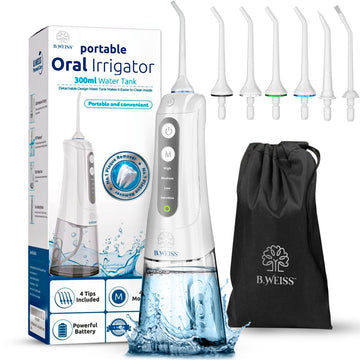How Many Times Should One Floss?
Introduction
Flossing is a crucial component of maintaining excellent oral health, targeting areas between teeth that brushing alone can't reach. In this article, we'll explore the ideal frequency for flossing, debunk common myths, and provide practical tips to enhance your dental care routine.
1. The Standard Recommendation: Flossing Daily
-
Professional Consensus:
- Dental professionals universally recommend flossing at least once a day. This frequency helps remove plaque and debris from between teeth, preventing cavities, gum disease, and promoting overall oral hygiene.
2. Myth Busting: Quality Over Quantity
-
Quality Matters:
- While daily flossing is emphasized, the emphasis should be on technique and thoroughness rather than sheer frequency. A well-executed flossing session is more beneficial than rushed, inconsistent efforts multiple times a day.
3. Tailoring to Individual Needs: Customizing Your Routine
-
Individual Variations:
- Factors such as genetics, diet, and overall oral health may influence the ideal frequency for each person. Consulting with a dentist allows for a personalized recommendation based on individual needs.
4. Why Daily? Understanding Plaque Buildup
-
Persistent Plaque:
- Plaque, a sticky film of bacteria, forms continuously on teeth. Daily flossing disrupts plaque formation, preventing it from hardening into tartar and safeguarding against various dental issues.
5. Preventing Gum Disease: The Role of Flossing
-
Gum Health Connection:
- Flossing plays a pivotal role in preventing gum disease. Regular removal of plaque and bacteria from the gumline helps maintain healthy gums, reducing the risk of gingivitis and periodontitis.
6. Interdental Cleaning Tools: Enhancing Your Routine
-
Flossing Alternatives:
- Traditional dental floss is not the only tool available for interdental cleaning. Floss picks, interdental brushes, and water flossers can be effective alternatives, catering to different preferences and needs.
7. Morning or Night: Does Timing Matter?
-
Consistency Trumps Timing:
- The critical factor is consistency rather than the specific time of day. Whether you choose to floss in the morning or before bedtime, maintaining a regular routine is key to reaping the full benefits of flossing.
8. Teaching Good Habits: Introducing Flossing to Children
-
Early Education:
- Instilling the habit of flossing from a young age sets the foundation for a lifetime of good oral health. Parents should introduce flossing to children as soon as their teeth start to touch.
Conclusion: Flossing as a Daily Ritual
In conclusion, the consensus among dental professionals is to floss at least once daily for optimal oral health. However, the emphasis should be on the quality of flossing, ensuring thoroughness and effectiveness. Tailoring your routine to individual needs, exploring alternative interdental cleaning tools, and establishing a consistent habit contribute to a comprehensive oral care strategy. Whether morning or night, the key is to make flossing a daily ritual, fostering a healthier and happier smile for years to come.
Disclaimer:
The content in this article is for informational purposes only and is not a substitute for professional medical advice. Always consult with a healthcare provider before making any changes to your health regimen. The author and publisher do not take responsibility for any consequences resulting from the information provided in this article.





